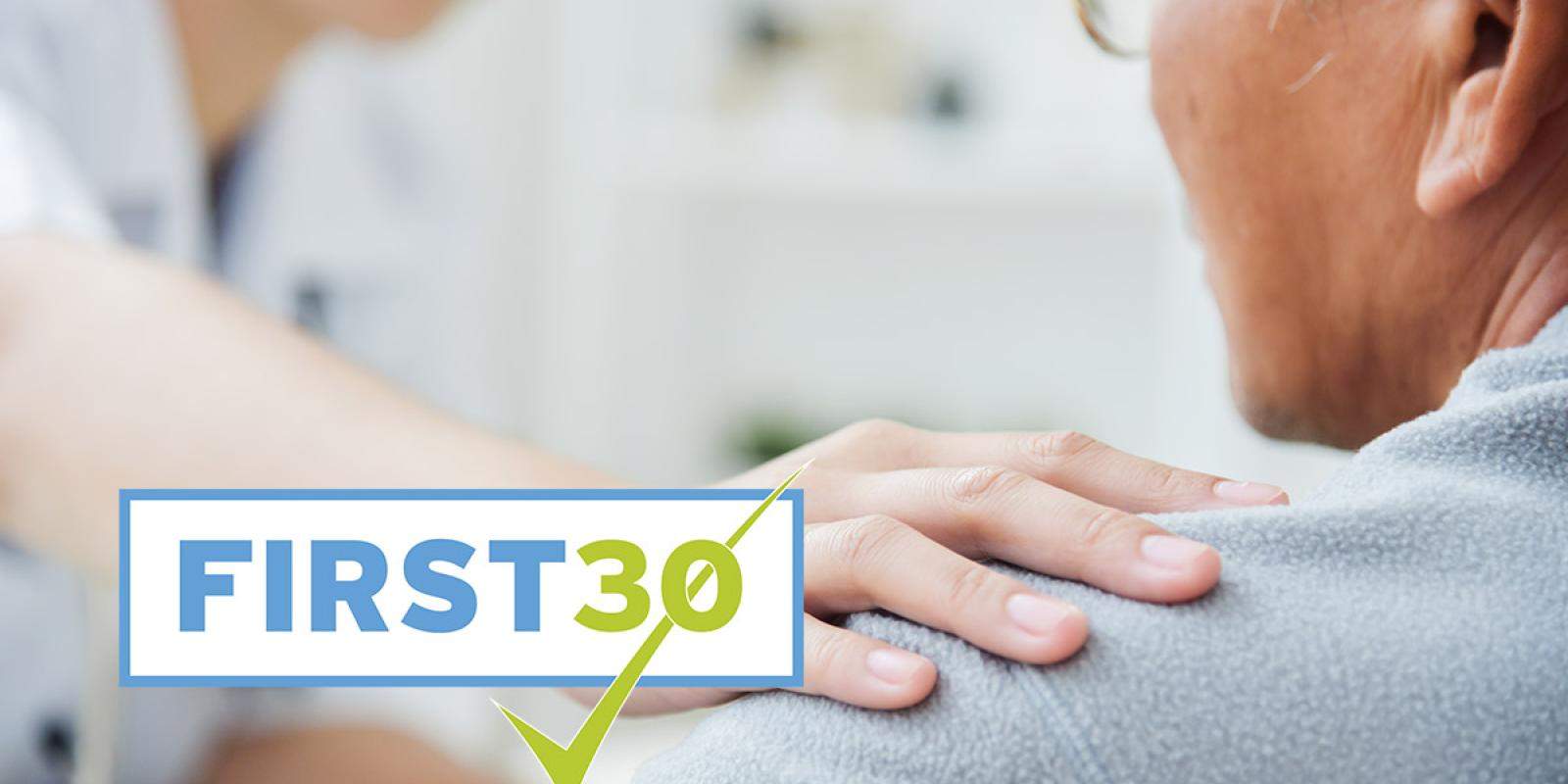
New to dialysis

- Medically reviewed by
- AKF's Medical Advisory Committee
- Last updated
- May 7, 2024
Starting dialysis often means creating a new normal for yourself and your family. There's a lot to think about, from choosing a treatment option, to finding new ways to enjoy your favorite activities, to managing a new eating plan. The FIRST30 program is all about helping you through this period of adjustment. Here, you'll find videos featuring people like you, who once were new to dialysis, as well as a checklist of important questions to ask your health care team.
Download your printable checklist
Everyone's experience starting dialysis is different. This checklist is meant to be a guide as you begin creating your new normal. It is not a complete list of all the questions people have when they start dialysis. If you have questions that aren't on this list, write them down and ask your healthcare team at your next appointment.
Enter your information to receive your checklist:
Questions to ask your social worker
Here are some questions you should ask your social worker when you first begin dialysis:
Coping and support
- How can I get help coping with all of these changes?
- What mood changes should I watch out for? How will I notice them?
- Are there support groups I can join?
Insurance
- What all does my health insurance cover?
Transportation
- Can I drive myself to dialysis?
- What can I do if I can't get a ride to dialysis?
Living expenses
- Are there community resources that can help me with my living expenses?
- What number should I call if I have questions?
Travel
- What do I need to do if I want to travel?
- Will my health insurance cover me if I need to go to a different dialysis clinic?
- What number should I call if I have questions?
Watch
What to Expect When Starting Dialysis
Learn how to stay focused during your dialysis treatment, overcome fears and misconceptions, acquire good habits, stay on schedule and ask for help when needed.
Questions to ask your dietitian
Here are some questions to ask your dietitian when you first begin dialysis:
Healthy Eating
- What changes do I need to make to what I eat and drink?
- What should I look out for when eating restaurant food?
- Are there tools that can help me keep track of what I eat and drink?
Cooking
- Where can I find tasty recipes for how I need to eat?
- What seasonings can I use? Which ones should I not use?
Binders
- What are "binders?" How do they work?
- What kinds of binders do I need to take?
- What happens if I forget to take my binders?
Watch
Staying Healthy While on Dialysis
Learn how to stay healthy while you are on dialysis and why it is so important for you and your health team.
Question to ask your doctor or nurse
Here are some questions to ask your doctor or nurse when you first begin dialysis:
Dialysis
- What happens during the dialysis treatment?
- How often will I need dialysis?
- How long does each dialysis session take?
Medicine
- What new medicines will I need to take?
- Do I need to stop taking medicines prescribed by my other doctors?
- What about over-the-counter medicine?
Treatments
- Is going to a clinic the only way to get dialysis?
- Can I do dialysis at home instead of going to a clinic?
- Can I do dialysis overnight?
- Which dialysis treatment is best for my lifestyle?
- How do I get a kidney transplant?
Your vascular access
- What is vascular access?
- What kind of vascular access do I have?
Watch
The Importance of Family Support
A family that offers full support and stays positive can be vital for someone who is new to dialysis treatment.
Question to ask your dialysis technician
Here are some questions to ask your dialysis technician when you first begin dialysis:
My dialysis clinic
- Are there any rules I need to know about the dialysis clinic?
- Can I take a tour of the dialysis clinic?
- What can I do to keep busy during dialysis?
- Can family or friends keep me company during dialysis treatments?
- What number should I call if I have questions?
Dialysis treatments
- How do I take care of my vascular access?
- What could hurt my vascular access?
- What should I wear for my dialysis treatments?
- Can I eat during my dialysis treatments?
Additional resources for dialysis patients
AKF hosts free, monthly educational webinars to help you and your loved ones learn more about living well with kidney disease. These live webinars are led by kidney disease experts and feature a discussion about a different topic each month.
If you have kidney failure/ESRD, it is important to work with your dietitian to learn how much of certain nutrients and how much fluid you should take in each day to stay healthy. Sticking to this kidney-friendly eating plan can help prevent the problems that can happen when waste and fluid build up in your body.
If you have ESRD, you will need dialysis or a kidney transplant to survive. There is no cure for ESRD, but many people live long lives while having dialysis or after having a kidney transplant. Your doctor can help you figure out which treatment is best for you.
If you are living with kidney failure (also called end-stage renal disease, or ESRD) and you can't afford your health care expenses, the American Kidney Fund may be able to help.

Watch
Free webinars
AKF hosts free, monthly educational webinars to help kidney patients and their loved ones learn more about living well with kidney disease. These webinars are free and open to everyone.

Blogs
Read our latest blogs
Kidney Today from the American Kidney Fund brings you voices from the fight against kidney disease—patients, their loved ones, renal professionals, and many others.

